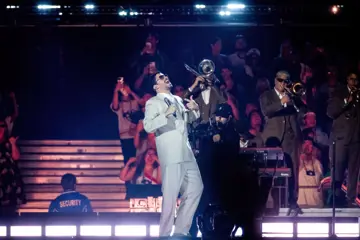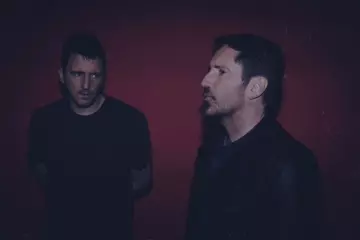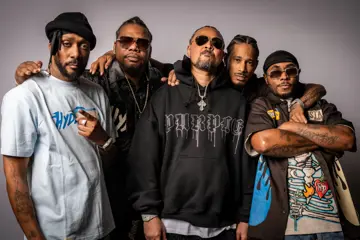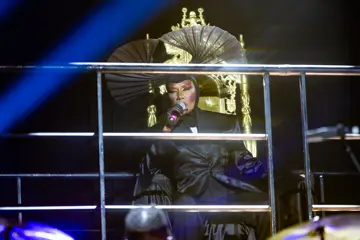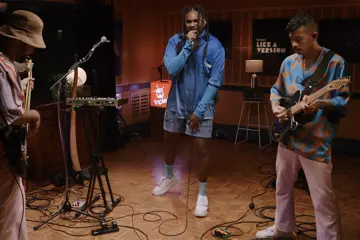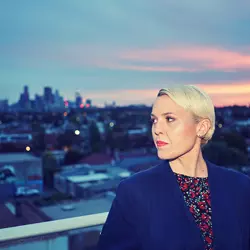 Liz Stringer
Liz Stringer“I guess the songwriting is still at the heart of it, so they're still very, I guess, song-based songs as opposed to sound-based songs – if that makes any sense,” she laughs. “But it's just I've never been so liberal with the amount of guitars and I think the songs are a bit more… needed a different treatment. But it still managed to not hem the songs in too much.
“And I'm a bit of a serial harmonist – as a friend of mine calls me – and I've sung backing vocals on a lot of albums and arranged them and harmony singing is something I really enjoy. So it was a really great treat for me, 'cause I arranged these kind of soul harmonies as well, to get Suzannah [Espie] and [bass player] Tim [Keegan] in to sing them.”
Stringer thinks the songs were calling out for something a bit bigger. “I mean these songs, on the whole, are a bit more happy and less dark and intricate – they're very verse/chorus/verse/chorus/bridge/chorus and quite hooky – so then I felt like it would be good to give them a bit of extra bells and whistles, whereas the songs on the other albums haven't ever needed them. I guess you look at what you think will best serve the song and the sentiment of the song and it just happened to be a bunch of songs… I mean you write a lot of songs and then you tend to group them into groups that are going to go well together and these songs all have that similar kind of guitar pop sort of thing going through them.”
Don't miss a beat with our FREE daily newsletter
So what, you might wonder, was prompting Stringer, who has established herself as very much a folk meets blues-based songwriter, into this more brighter, guitar-based pop direction?
“I think it was always going to happen,” Stringer admits. “I really love that sort of music; as a listener it's really satisfying and I don't know whether I was maybe happier [laughs] or maybe more confident, to try it, 'cause in a way first of all I'm a folk artist and that's what I do, but in some ways this stuff comes even more naturally to me than a lot of that dark folk stuff. So it's just a natural thing that was always going to happen at some point.
“I think in a way, it requires a bit more confidence or self-assurance to write about something that is kind of happy. I mean it does for me I think, 'cause I always assumed that the darker side of life is what I write well about, but actually that's not true. It's just a natural evolution of how I'm writing and I think just naturally there were some songs that weren't completely depressing,” she laughs heartily, “which really surprised me. I don't think I could have written songs like that five years ago and I just think that my palette has extended or it's just naturally a direction that I'm going to. But I think it's definitely a sort of pragmatic thing; I don't think I've always done that easily.”





